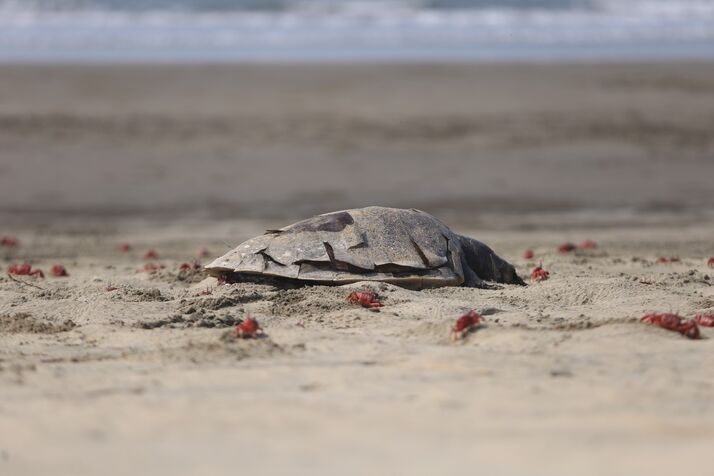Cox’s Bazar has witnessed a sharp rise in sea turtle deaths, with 68 dead turtles washing ashore at various coastal points in just two days. According to the Bangladesh Oceanographic Research Institute (BORI), 84 dead turtles were found along the coastline in the first 24 days of January.
Increased Mortality Rates
Mohammad Shimul Bhuiyan, a scientific officer at BORI, informed Cox’s Bazar Life that all the turtles found are of the Olive Ridley species. “Some of the turtles show visible injuries, possibly caused by fishing nets, collisions with large vessels, or attacks by stray dogs while nesting onshore,” he said. Investigations are ongoing to determine the exact causes.
Compared to January-February 2024, when 29 turtle carcasses were found, this year’s figures have already surged to 84 by mid-January, with 68 discovered over the past two days alone.
Nesting Challenges During Breeding Season
The Nature Conservation Management (NACOM) reported that nesting areas for turtles along the Cox’s Bazar coastline have drastically reduced. Ten years ago, turtles laid eggs at 52 points along the coast; now, this has dwindled to just 34. Overcrowding from tourism, artificial lighting, and increased human activity on the beach have made nesting sites perilous.
“Sea turtles prefer secluded beaches for laying eggs,” said Dr. Shafiqul Rahman, deputy project director of NACOM. “But these areas have become hazardous due to fishing activities, stray dogs, and tourism.”
Urgent Conservation Measures Needed
Rashedul Majid, head of the environmental group Environment People, highlighted the role of fishing practices in turtle mortality. “Fishermen often kill turtles trapped in their nets and dump them back into the sea. Once washed ashore, stray dogs consume the carcasses,” he said.
Conservationists have called for immediate measures, including raising awareness among fishermen, protecting nesting sites, regulating stray dog populations on beaches, restricting current nets, and controlling fishing in deep waters.
Experts warn that without urgent interventions, sea turtles face the risk of extinction, which would pose a severe threat to marine biodiversity.
By Rajin Saleh
Photo: Hussain Shetu









